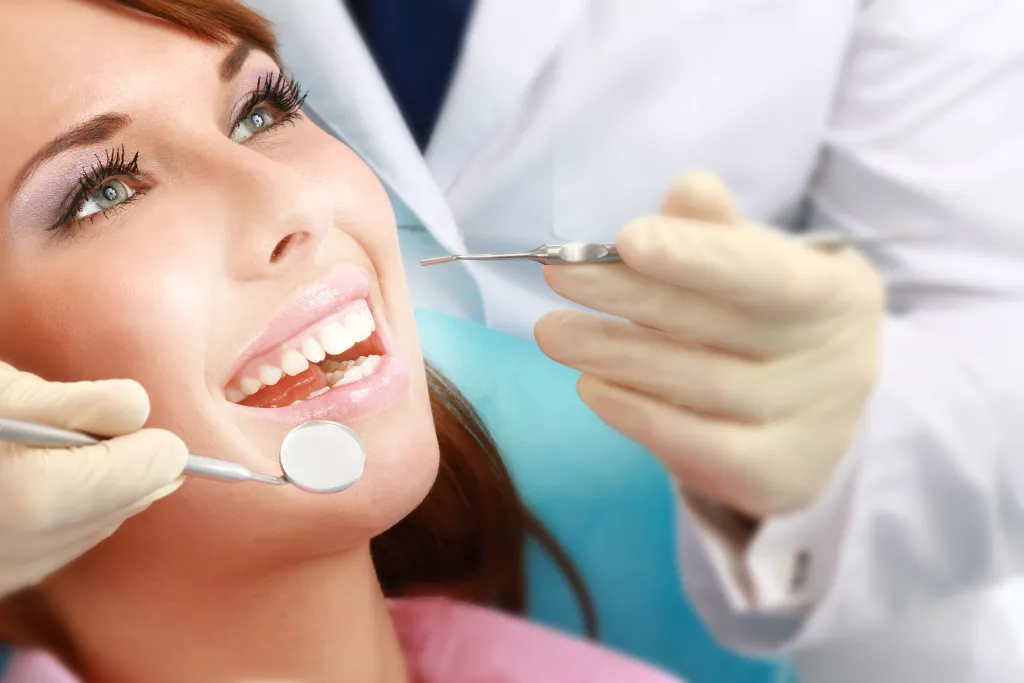

Dental hygiene goes hand in hand with overall oral hygiene. Dental hygiene deals mainly with the teeth and gums, but taking care of the rest of your mouth has its part in the health of your smile.
Bacteria thrive in dark, warm and moist environments, and can lead to cavities, gum disease and a host of other issues.No dental treatment will be effective unless you follow it up with proper routine home care. You should brush and floss regularly after each meal and at a minimum twice a day. The key is to not only do it regularly, but do it right!
Diabetes is so closely associated with gum disease in some studies that it is hard to tease out from the data which one may be the causal factor of the other.
Some bacteria of the mouth can cause endocarditis, which is inflammation of the heart. Proper hygiene of the mouth, teeth and gums helps prevent cavities, tooth loss, gingivitis and advanced periodontal disease (oral soft tissue and bone damage).
A clean mouth is a healthy mouth. If your mouth is healthy and you have good oral hygiene habits, your dentist will probably recommend a professional teeth cleaning with a dental hygienist twice a year. If it has been a while since your last cleaning or if the dentist suspects you have some degree of gum disease he may recommend more frequent and more detailed cleanings.
Most dental insurance plans provide for two (2) cleanings per year. Be sure to review your policy and take advantage of regular cleanings.
During a professional cleaning, a dental hygienist uses various instruments or devices to loosen and remove deposits from the teeth. This is followed up by a polishing of the teeth. To ensure good oral health your professional cleaning should be followed up by a regular at-home oral care.
To properly floss, you should wind the floss around both index fingers and push it between each of your teeth. Move upwards, downwards, and sideways to remove food and plaque. For brushing, whether you use an electric toothbrush or not, hold the brush at a 45 degree angle and gently but thoroughly rotate the bristles across your teeth and under your gums in a forward and backward motion. Make sure you get the tops of your teeth, your tongue, and the inside surfaces of your teeth, too. Also be sure your toothpaste contains fluoride. This will help harden the outer layer of your teeth (enamel) to prevent cavities. Mechanical removal of plaque by proper toothbrushing and flossing of your teeth controls the proliferation of bacteria that form the plaque. Brushing and flossing remain the best methods of preventing cavities and other problems that can affect the gums, soft tissue, teeth and bones of your mouth.
Dental plaque is bacteria growing in your mouth. As the colonies grow, they may make your mouth more acidic. These acids begin to eat away at the enamel of your teeth, forming calculus (tartar) that hardens. Calculus can only be removed by professional dental cleaning. The American Dental Association (ADA) recommends brushing and flossing at least twice per day. This removes the bacterial biofilm of plaque before it can form into calculus. Even the best oral hygiene cannot prevent at least some calculus buildup, and this is the reason why you should schedule cleaning of your teeth every six months by a dental hygienist.
To finish up your brushing and flossing, an antibacterial rinse can help you reduce bacteria. Antiseptic rinses kill bacteria and helps remove them from your mouth. Most commercial toothpastes contain protective fluoride. Many municipal water systems also contain fluoride. Still, you can ask your dental professional if using a fluoridated rinse might be helpful to prevent cavities. An added benefit of antiseptic rinses is helping to control bad breath (halitosis).
The Oral Cancer Foundation declares, “HPV is the leading cause of oropharyngeal cancers.” HPV is short for human papillomavirus. A study of 3400 adults in the United States who indicated they had fair to poor oral hygiene were discovered to have a higher likelihood of having oral HPV present. The cause of the higher likelihood of the presence of HPV in those with fair to poor oral hygiene is being worked out, but it should be a motivator to begin or continue good oral hygiene practices, including flossing your teeth daily.
Everyone can take the time to brush and floss, and both are critical to overall oral health and fitness. Brushing regularly removes bacterial buildup. Using an ADA recommended toothpaste helps to get the bacteria off the surfaces of your teeth and the gum line, helps to polish stains off your teeth, adds fluoride for cavity prevention, and even tastes good and makes your breath smell nice. Flossing gets into all the nooks and crannies in between teeth to remove plaque before it hardens. Avoid hard and medium bristle toothbrushes, opting for the softest bristles available for your preferred brand. Also, do not press hard when brushing. Let the tips of the bristles do the work of scrubbing away the plaque.
Commit to a week of proper toothbrushing that includes flossing your teeth at least twice daily. One session is easy to cover by doing it before bed. Supervise children to develop good oral hygiene habits early. It is tougher to unlearn bad methods and habits than it is to form good ones. Just like any other of life’s routines, once you get established in it, it becomes second nature. The benefits of good dental hygiene may not be immediately noticeable, but they certainly pay off in the long run. Crowns, implants, bridges, partials and dentures are expensive, and they are a poor substitute for your own real teeth. Keep your teeth healthy by following a daily routine of brushing and flossing away plaque.
And you can always ask us if you have any questions about oral health at home!